Workshop "Abolishing lump-sum tax: What do business households need to prepare?" - Photo: VGP/HT
New regulations, businesses need to grasp firmly
On August 26, in Hanoi, the Vietnam Tax Consultants Association (VTCA), MISA Joint Stock Company and Vietnam Prosperity Joint Stock Commercial Bank (VPBank) jointly organized the Workshop "Abolishing lump-sum tax: What do business households need to prepare?", the event attracted the participation of tax authorities, financial and accounting experts, press agencies and nearly 5,000 business households watching online.
Ms. Nguyen Thi Thu Ha, former Director of the Department of Propaganda and Taxpayer Support (Tax Department) said: Business households need to clearly understand their scale to fulfill their tax obligations in accordance with regulations. Specifically, large-scale households must submit monthly tax declarations, while small or newly established households must submit quarterly tax declarations according to the provisions of Decree 126 and Circular 40. Currently, there are two main types: quarterly or monthly business households must submit tax declarations. In reality, 90% of business households submit quarterly tax declarations, while large-scale households with turnover of over VND3 billion or VND10 billion are not many.
According to Ms. Nguyen Thi Thu Ha, most business households when switching from lump-sum tax to declaration must submit quarterly tax declarations. Regarding the method of determining the tax amount, the tax rate is determined by multiplying taxable revenue by the tax rate or value-added taxable revenue by the tax rate. When switching to declaration, business households must determine the tax amount themselves based on the revenue generated.
"Business households must declare and pay taxes accordingly for their revenue, but must ensure that the declared revenue is highly reliable and fully complies with the invoice, voucher and accounting book regime," Ms. Ha Luu noted.
Ms. Nguyen Thi Thu Ha, former Director of the Department of Propaganda and Taxpayer Support (Tax Department) answered questions at the workshop - Photo: VGP/HT
Responding to business associations, Ms. Nguyen Thi Thu Ha said: From Decree 70/2025/ND-CP, business households with revenue of 1 billion VND/year or more must issue electronic invoices from cash registers and connect data with tax authorities. This is a transitional phase, households with less than 1 billion VND/year can voluntarily apply. Ms. Nguyen Thi Thu Ha emphasized that if the information is clear and transparent, management will be easier.
In fact, it is often the habit of end consumers not to take invoices unless there is an incentive mechanism. However, it is the responsibility of business households to issue invoices when selling goods or providing services.
If the business has revenue of 1 billion VND or more, it needs to register with the tax authority, prepare appropriate equipment and software, and clearly classify output and input goods and services to track revenue.
"In particular, households must clearly understand the time of invoice issuance. For example, if a sale is made today but the customer owes money, the invoice will only be issued when the customer pays. If the invoice is issued late or incompletely, it will affect tax obligations and may result in administrative penalties," said Ms. Nguyen Thi Thu Ha.
Regarding regulations for e-commerce platforms, Ms. Nguyen Thi Thu Ha said: The Government Decree classifies e-commerce platforms into two types: platforms with payment functions and platforms without payment functions. For business households, Decree 117 regulates business activities through platforms with payment functions, in which transactions will be deducted tax immediately upon success. Thus, business households do not have to issue duplicate invoices, because the platform already has the function of issuing electronic invoices under authorization.
Buyers, individuals and tax authorities all receive information from the floor. Once the floor has issued an invoice, the household does not have to issue it again, avoiding duplication. With the type of tax paid by the floor, the individual business does not have to pay more; only in a few cases related to special consumption tax, environmental protection or resources, the individual must declare the remaining amount.
"It is noteworthy that Decree 117 also expands the regulation: If the floor has deducted but the total revenue in the year has not reached the tax threshold, the individual household can request a tax refund based on the collected documents. Therefore, there will be no duplicate invoices and duplicate declarations, while still ensuring the ability to refund taxes when eligible. Business households need to proactively research and grasp the basic content of invoices, declarations and tax payments to comply with the law. This is a requirement that both ensures rights and helps build a transparent and fair business environment," said Ms. Nguyen Thi Thu Ha.
Mr. Nguyen Quang Khai, Deputy Director of MISA Retail Solutions Division, talks about technology solutions - Photo: VGP/HT
Technology and financial solutions to accompany businesses
Mr. Nguyen Quang Khai, Deputy Director of MISA Retail Solutions, emphasized: The abolition of lump-sum tax is both a challenge to change habits and an opportunity for business households to be transparent about their financial obligations, while having more favorable conditions to access capital from banks, easily cooperate with businesses, participate deeply in the value chain and affirm their reputation in the market.
To support business households and individuals in complying with tax regulations and electronic invoices according to Resolution 68-NQ/TW and Government Decrees, Mr. Khai introduced a set of solutions for sales management - electronic invoices - tax declaration specifically for business households. This solution set was developed by MISA with the goal of helping business households manage comprehensively, easily deploy, comply with regulations and optimize costs.
For small businesses, MISA provides the MISA eShop Sales Management Platform, which allows sales management, invoice issuance, and tax declaration on a single application using a smartphone. Furthermore, the integrated artificial intelligence (AI) solution supports sellers to place orders by voice quickly and easily. The software also automatically aggregates data and sends sample declarations to tax authorities right on the phone.
For larger businesses, MISA offers a solution set including MISA eShop software and POS hardware, helping to issue invoices promptly when selling. In addition, the software connects directly to MISA's accounting and tax solutions, automating data entry, accounting and electronic tax payment. In addition, this platform is also integrated with MISA ASP Service Accounting, connecting with 23,900 accounting and tax experts, serving millions of businesses, contributing to standardizing financial management, tax compliance and improving professionalism.
In addition to issuing electronic invoices, businesses also care about simplicity and convenience. Previously, using multiple software from multiple suppliers caused difficulties when data was not connected and many passwords had to be remembered. Therefore, MISA's "all-in-one" solution has overcome this problem. With just a smartphone or computer, small businesses can manage sales, issue invoices and send tax declarations. For large-scale stores and restaurants, MISA's solution still fully meets the needs, from managing revenue - expenditure, debts to connecting accounting software, suitable for both micro, small and medium-sized businesses. The cost of use is only about 100,000 VND/month (equivalent to more than 3,000 VND/day), which is considered reasonable compared to the efficiency it brings. In addition, MISA applies AI in sales, automatic customer care, provides a 24/7 consulting hotline and a nationwide system of agents and collaborators to support business households.
"The Tax Department has signed a cooperation agreement with MISA and announced a support portal, affirming the legitimacy of the solution. This is an important step, helping business households comply with regulations, manage effectively and develop sustainably," Mr. Khai shared.
Mr. Ngo Binh Nguyen - Director of VPBank's Household Business Segment - Photo: VGP/HT
From a banking perspective, Mr. Ngo Binh Nguyen, Director of VPBank's Household Business Segment, introduced a series of financial solutions specifically for household businesses. First of all, the V20K loan package is designed with preferential interest rates starting from only 3.99%/year for mortgage loans, with a limit of up to VND 20,000 billion. At the same time, customers can open a VPBank CommCredit credit card with a cashback of up to 12%. In addition, the bank also offers profit accumulation solutions from the Super Profit toolkit, with a yield of 3.5%/year, especially suitable for customers with short-term idle cash flow.
"VPBank is committed to accompanying the business customer community, from individuals to individual business households. The bank not only provides capital but also supports operations management, insurance and reinvestment, creating a closed value chain. Furthermore, the goal is to promote long-term prosperity for customers as well as the Vietnamese business community," VPBank representative affirmed.
Huy Thang
Source: https://baochinhphu.vn/tu-thue-khoan-sang-ke-khai-ho-kinh-doanh-can-chuan-bi-gi-102250826135403669.htm



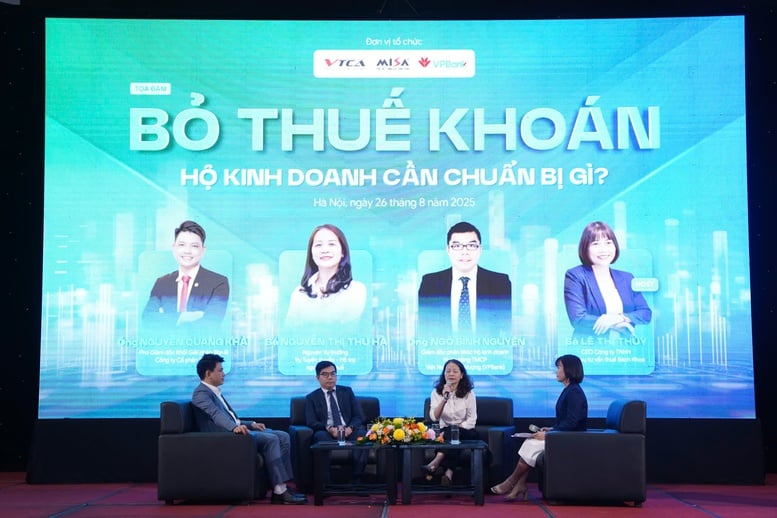
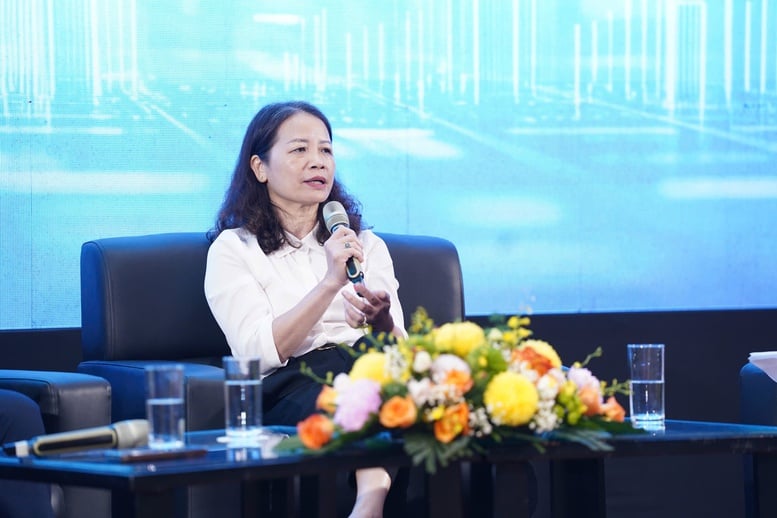

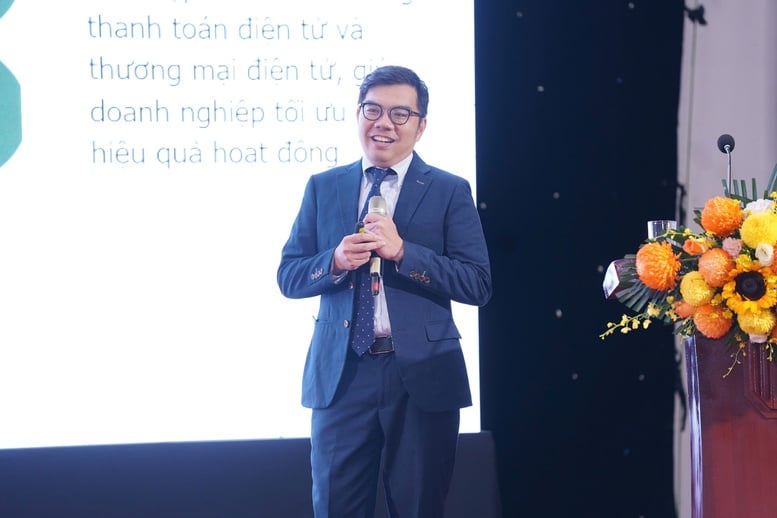


![[Photo] Hanoi: Authorities work hard to overcome the effects of heavy rain](https://vphoto.vietnam.vn/thumb/1200x675/vietnam/resource/IMAGE/2025/8/26/380f98ee36a34e62a9b7894b020112a8)
![[Photo] Multi-colored cultural space at the Exhibition "80 years of the journey of Independence - Freedom - Happiness"](https://vphoto.vietnam.vn/thumb/1200x675/vietnam/resource/IMAGE/2025/8/26/fe69de34803e4ac1bf88ce49813d95d8)


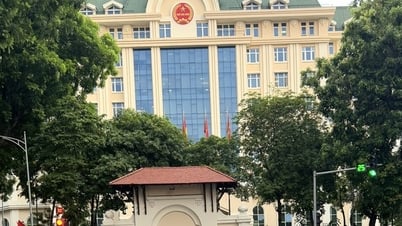

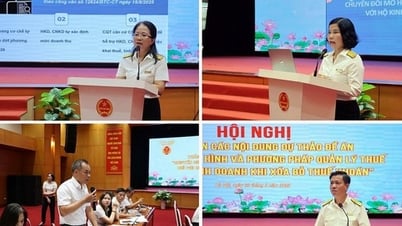
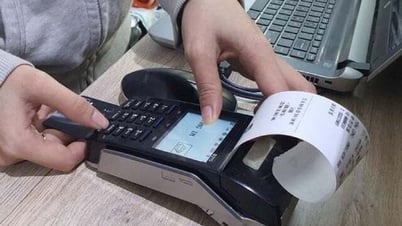



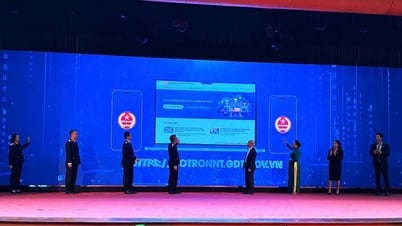



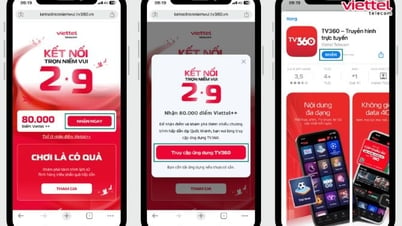

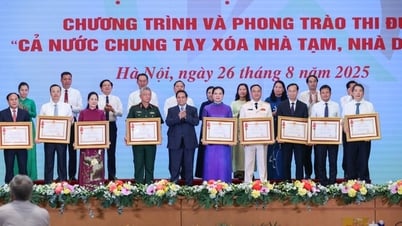







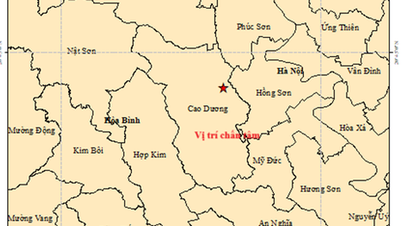

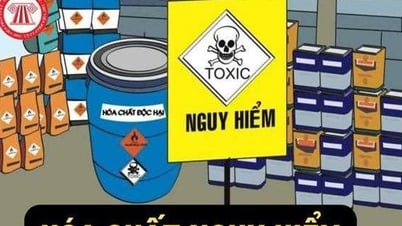
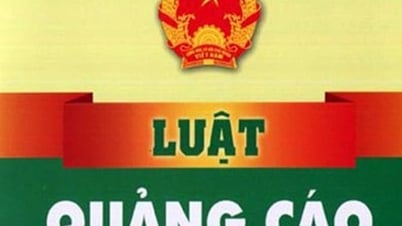
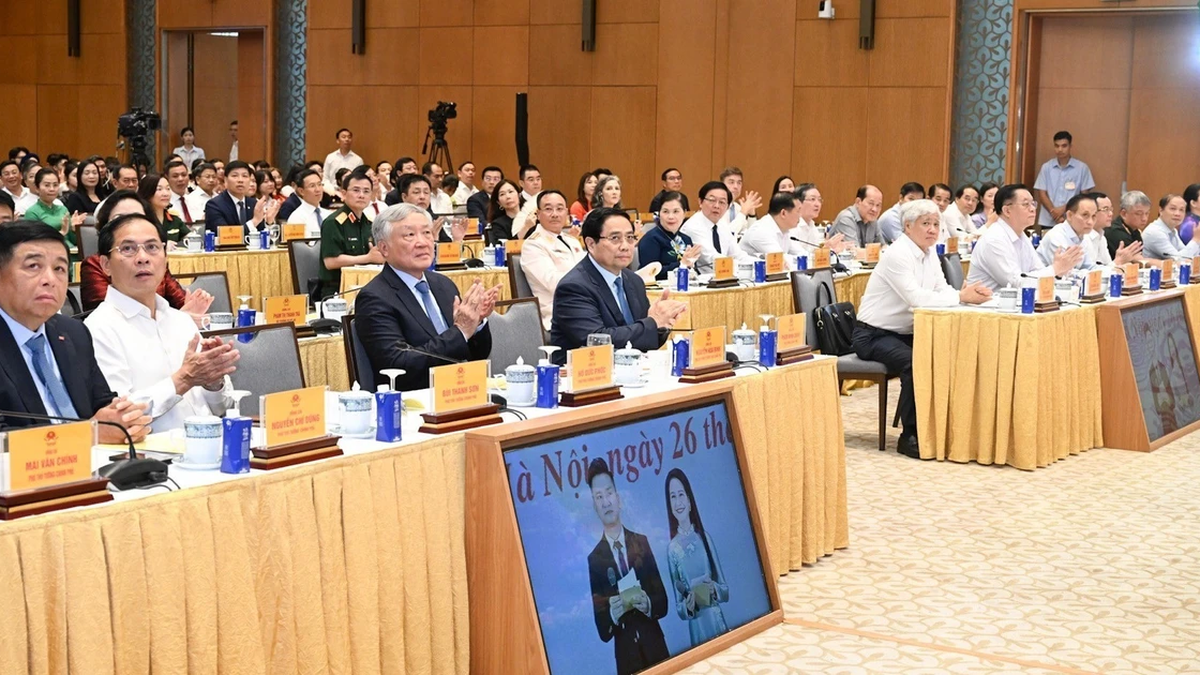





























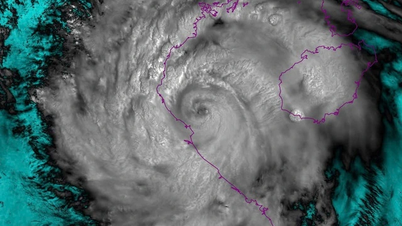




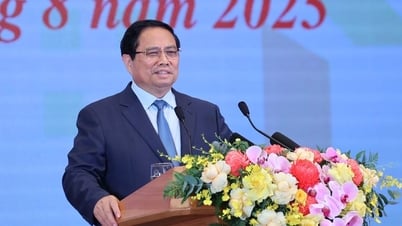


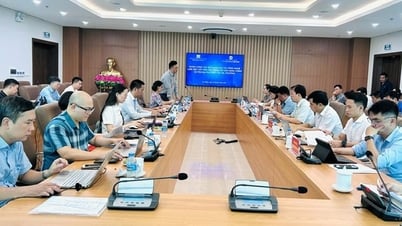
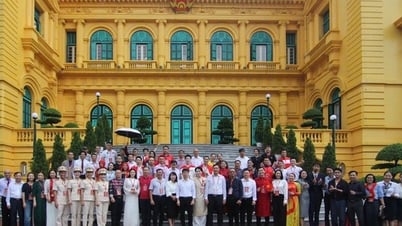



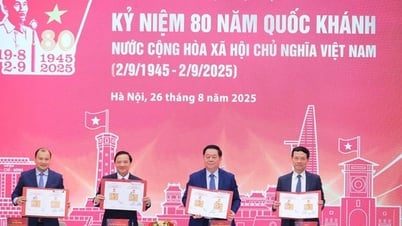
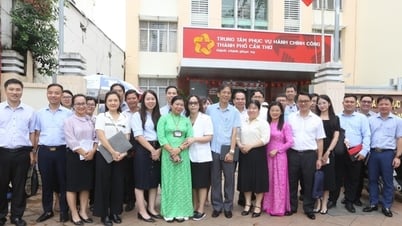









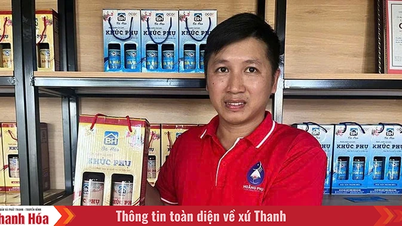





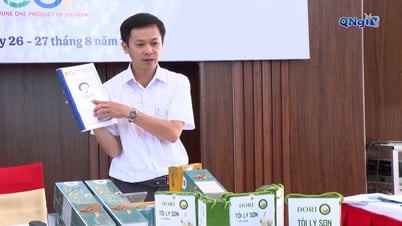









Comment (0)